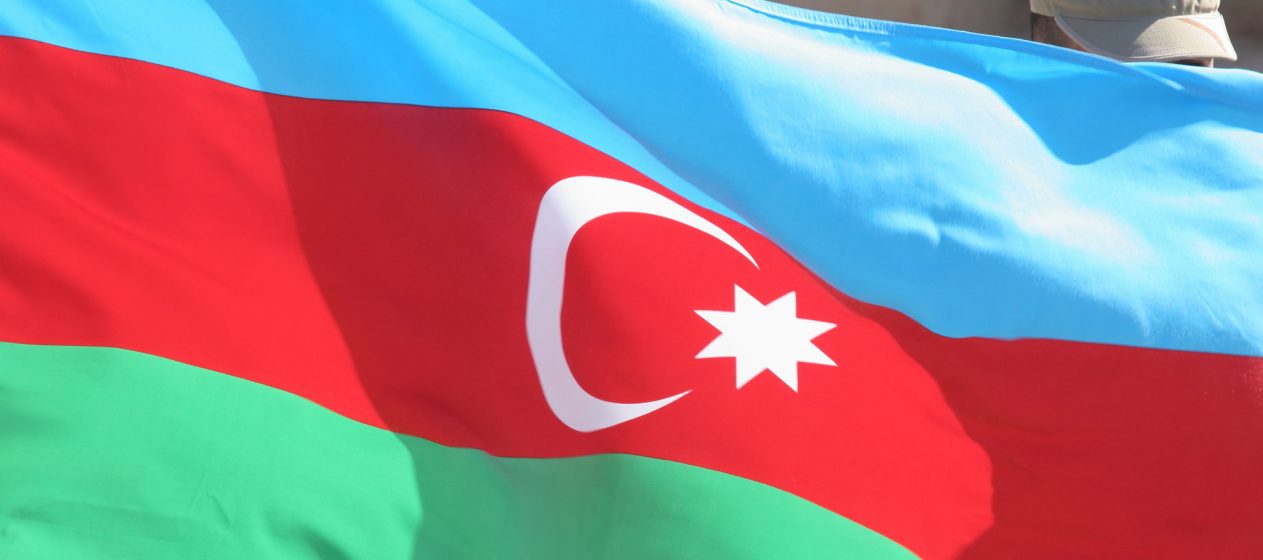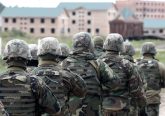On August 8, 2016, Russian President Vladimir Putin and Azerbaijani President Ilham Aliyev met in Baku. Shortly after their meeting, Putin announced Russia’s intention to forge a strategic partnership with Azerbaijan. Putin also expressed interest in expanding Russia-Azerbaijan trade links and strengthening Moscow-Baku military cooperation in the Caspian Sea region.
As Russia has increased its arms exports to Azerbaijan in recent years, many analysts believe that the Putin-Aliyev summit is a starting point for a consolidated Moscow-Baku alliance. This assessment overestimates the strength of the Russia-Azerbaijan partnership. There is compelling evidence that the much-touted “alliance” between Russia and Azerbaijan is merely a temporary marriage of convenience aimed at maximizing both countries’ geopolitical influence.
Even though Azerbaijan has recently upgraded its economic and military partnership with Russia, Azerbaijan’s commitment to foreign policy neutrality and criticisms of Russian military activities in Ukraine underscore the limits of the Moscow-Baku partnership. Russia has responded to Aliyev’s conduct by cautiously regulating the amount of military assistance it provides to Azerbaijan. This ensures that Nagorno-Karabakh remains a frozen conflict zone, and allows Armenia to gain a measure of security from Azerbaijani aggression.
Azerbaijan’s Balancing Strategy has Caused Putin to Distrust Baku’s Intentions
Since Ilham Aliyev took over from his father as Azerbaijan’s President in 2003, Azerbaijan has bolstered its regional influence by maintaining cordial relations with both Russia and the West. Azerbaijan’s neutrality is a rare phenomenon in the post-Soviet region. Aside from Moldova, Ukraine and Turkmenistan, Azerbaijan is the only CIS country that is not a member of NATO, the Russian-led CSTO security bloc, the Shanghai Cooperation Organization (SCO) or the Eurasian Economic Union (EEU).
Azerbaijan has used its neutral foreign policy and strategic location to carve out a role as a mediator during international crises. On June 28, Turkish Prime Minister Binali Yildrim thanked Azerbaijan for its role in facilitating the normalization of relations between Turkey and Russia. Aliyev hopes that Baku’s mediation role in the Russia-Turkey standoff could be a precedent for future successful Azerbaijani diplomatic interventions. In particular, Azerbaijani political analysts argue that Baku could be a mediator in the Russia-Georgia conflict and Russia-Turkmenistan standoff over natural gas exports.
Even though Aliyev’s balancing strategy has bolstered Azerbaijan’s international status, Azerbaijan is unlikely to forge a durable alliance with Russia. Baku’s non-committal approach to international affairs has caused Putin to view Azerbaijan as an opportunistic country that seeks to maximize trade volumes and geopolitical influence at any cost.
Putin’s concerns about Azerbaijan’s loyalty to Russia have restricted Baku’s ability to profit from the recent Russia-Turkey thaw. After Turkey’s November shoot-down of a Russian jet flying over its soil, Azerbaijan refused to support either Moscow or Ankara. As the Russia-Turkey standoff escalated, Azerbaijan developed a southern gas corridor to expand Baku’s natural gas exports to the EU. Russian policymakers viewed this gas corridor as an undue exploitation of Russia-Turkey tensions that threatened Moscow’s hegemony over European energy markets.
To retaliate against Azerbaijan’s energy deals with the EU, Russia has used its recent improvement in relations with Turkey to undercut Azerbaijan’s position as an energy supplier to Europe. Russia’s revival of the construction of the Turkstream pipeline linking Russian natural gas to Turkey has diminished the effectiveness of Azerbaijan’s outreach to European energy markets. A decline in Azerbaijani gas exports to Europe could exacerbate Azerbaijan’s worsening currency crisis and increase the vulnerability of Aliyev’s government to popular unrest.
Azerbaijan’s criticisms of Russia’s military intervention in Ukraine have also obstructed progress towards a Russia-Azerbaijan alliance. During a recent bilateral summit in Baku, Ukrainian President Petro Poroshenko expressed solidarity with Azerbaijan’s territorial claims to Nagorno-Karabakh. Ilham Aliyev reiterated his condemnation of the Russian annexation of Crimea and stated his opposition to Russia’s efforts to undermine Ukraine’s territorial integrity. Baku’s pro-Ukraine position has helped Azerbaijan convince Western countries to turn a blind eye to Aliyev’s human rights abuses but has also done great harm to Azerbaijan’s prospects of cooperation with Russia.
Russia is Reluctant to Provide Decisive Military Assistance to Azerbaijan
Many experts on the post-Soviet region have cited Russia’s handling of the April 2-5 hostilities in Nagorno-Karabakh as evidence of a budding Russia-Azerbaijan alliance. During these hostilities, senior Russian officials vowed to uphold Moscow’s strategy of selling arms to both Armenia and Azerbaijan. Russia’s refusal to provide military assistance to Armenia or condemn Azerbaijani aggression also fuelled speculation that Russia had foreknowledge of Azerbaijan’s military activities in Nagorno-Karabakh and had not shared this information with Yerevan.
As Armenian nationalists were angered by Russia’s neutrality during the Nagorno-Karabakh hostilities, anti-Russian unrest in Armenia has surged in recent months. The Azerbaijani government has exploited anti-Russian sentiments in Armenia to strengthen the Baku-Moscow relationship and highlight Armenia as an “untrustworthy” Russian ally.
Despite rising anti-Russian unrest in Armenia, Moscow is unlikely to pivot firmly towards Azerbaijan. Even though Azerbaijan has purchased 85 per cent of its arms imports from Russia from 2010-2015, Russia has not provided Azerbaijan with enough military support to record a decisive victory in Nagorno-Karabakh. Instead, Moscow has provided Azerbaijan with just enough arms supplies for Aliyev to win small, tactical victories that rally Azerbaijani nationalists around his government. As Aliyev benefits politically from his relationship with Russia, Putin has used Russian arms contracts as a foundation for cooperation with Azerbaijan on issues of shared concern, like energy security and combating ISIS.
Putin’s desire to demonstrate the firmness of Russian CSTO security guarantees to the international community will also prevent the formation of a Russia-Azerbaijan alliance. As the CSTO’s two most powerful countries, Russia and Kazakhstan, have close diplomatic ties to Azerbaijan, many Armenians have questioned the credibility of CSTO security guarantees.
To appease Armenia’s concerns about the credibility of Russia’s alliance commitments to Yerevan, Putin has taken steps to upgrade the Moscow-Yerevan security partnership. On August 16, Russian Defense Minister Sergei Shoygu and his Armenian counterpart, Seyran Ohanyan, announced that the Russian military would provide more military training for Armenian soldiers. Shoygu also described Russia’s military base in Armenia as a “guarantor of stability” in the Caucasus. This rhetoric demonstrates that Russia does not want the Azerbaijani military to become strong enough to completely overrun Armenian forces defending Nagorno-Karabakh.
Even though Russia and Azerbaijan will continue to cooperate extensively in the economic and military spheres, this partnership is unlikely to escalate to a full-blown alliance. Azerbaijan’s balancing strategy and criticisms of Russian foreign policy have hindered progress towards a durable Moscow-Baku alliance. Russia’s security commitments to Armenia will also prevent Putin from fully embracing Azerbaijan. Barring a drastic change in Azerbaijan’s conduct, Russia’s arms-length cooperation with Baku will likely continue. This will ensure the retention of an uneasy status quo in the South Caucasus for years to come.
This blog post was first published at the Huffington Post.







